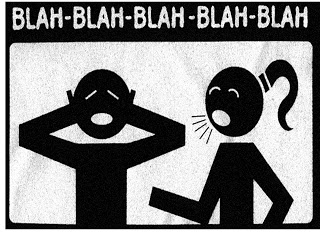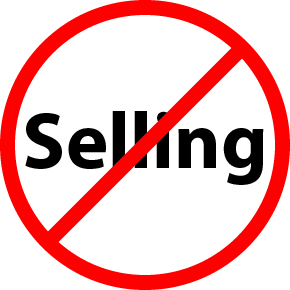A friend of ours is writing a book. She copyrighted it but still hasn’t completed it. We figured she is still in her research mode on how many businesses sell and don’t tell. We were intrigued by her concept. Fact is, we tend to abide by her philosophy. We can’t really sell anything. The customer is the one who makes the final decision based on what we “tell”. This brings along another thought. When businesses are telling are they “fairy telling” or “actual telling”? This is what any one customer asks themselves.  Now, our friend has agreed that to sell a book is difficult and she has asked if we could “publish” her comments on this site. Because she has been in the automotive industry on and off for the past 28 years, we thought this appropriate, as many of her stories will likely relate to our industry. So do understand that although she is interviewing us, and writing this on our behalf, and adding us to some of her stories, all that is printed here is copyrighted under her book that she will compile from these blogs. Her copyrighted book to be released who knows when called “Tell, Don’t Sell”.
Now, our friend has agreed that to sell a book is difficult and she has asked if we could “publish” her comments on this site. Because she has been in the automotive industry on and off for the past 28 years, we thought this appropriate, as many of her stories will likely relate to our industry. So do understand that although she is interviewing us, and writing this on our behalf, and adding us to some of her stories, all that is printed here is copyrighted under her book that she will compile from these blogs. Her copyrighted book to be released who knows when called “Tell, Don’t Sell”.
The firs thing that Jane told us was that she appreciated the honesty of a business. Telling, to some sales people is taboo. To her, when she was a recruiter in the automotive industry, then later when she had her own auto repair company, telling a client or customer the brass tacks was necessary to retain the integrity and values of the business. We asked her if she succeeded using her “Tell, Don’t Sell” approach. She was blunt and honest and said “no”. This, of course, led us to question why she was trying to promote this method of business etiquette. It was quite obvious to her. She stated that although she had been taken (and these stories are to unfold as these posts move along), that during the time she was in business, and although always a tough road, her customers and clients appreciated her honesty, integrity and value system. So in essence, she told us that even if the businesses she worked for or owned did not pan out, there are specific reasons, and they were not about the “tell, don’t sell” philosophy. In fact, they had nothing to do with that. In the case of the placement agency, it was bad management and communication within the organization. In the case of her own company, she just had bad luck buying two months before one of the worst recessions since 1991. The first one is something a company has control over, the second it does not.
Her stories of how she handled these issues, both as employee and as employer are to follow. But suffice it to say, we are happy that she started off as a client, and is now a great friend and believes the same things we do. Tell, don’t sell. Leave it up to the customer/client to decide. If he/she comes back, it’s usually to “discuss” the issue. Ask why. Ask questions. This because you are telling, not selling. It gives them an open window to feel comfortable enough to communicate with you. Selling puts pressure on your customers. Telling them the story invites them to speak and share their opinions.
the customer/client to decide. If he/she comes back, it’s usually to “discuss” the issue. Ask why. Ask questions. This because you are telling, not selling. It gives them an open window to feel comfortable enough to communicate with you. Selling puts pressure on your customers. Telling them the story invites them to speak and share their opinions.
Now, in truth, we suggested Jane change her title to “Explain, Suggest, Don’t ‘Tell ‘Them’ or ‘Sell to Them'”. She chuckled. In the interim, seeing as that title has been posted, be assured, it’s also copyrighted, so don’t try to steal it. 🙂 To this she explained the “Tell” means be honest and open and give disclosure, and the “Sell” meaning a more bullying approach, which she does not condone, as there are some people susceptible to this that later regret it and have remorse towards the business that created that feeling of “I need to buy” but later the feeling “Oh my, I really couldn’t afford it, or needed it, or…”. So we are okay with her title now.
Until the next post, have a great day and night.
The Paint Touch Up And Go Crew (and if Jane did not quote us right, we will be on her to change to content tomorrow.)

You must be logged in to post a comment.